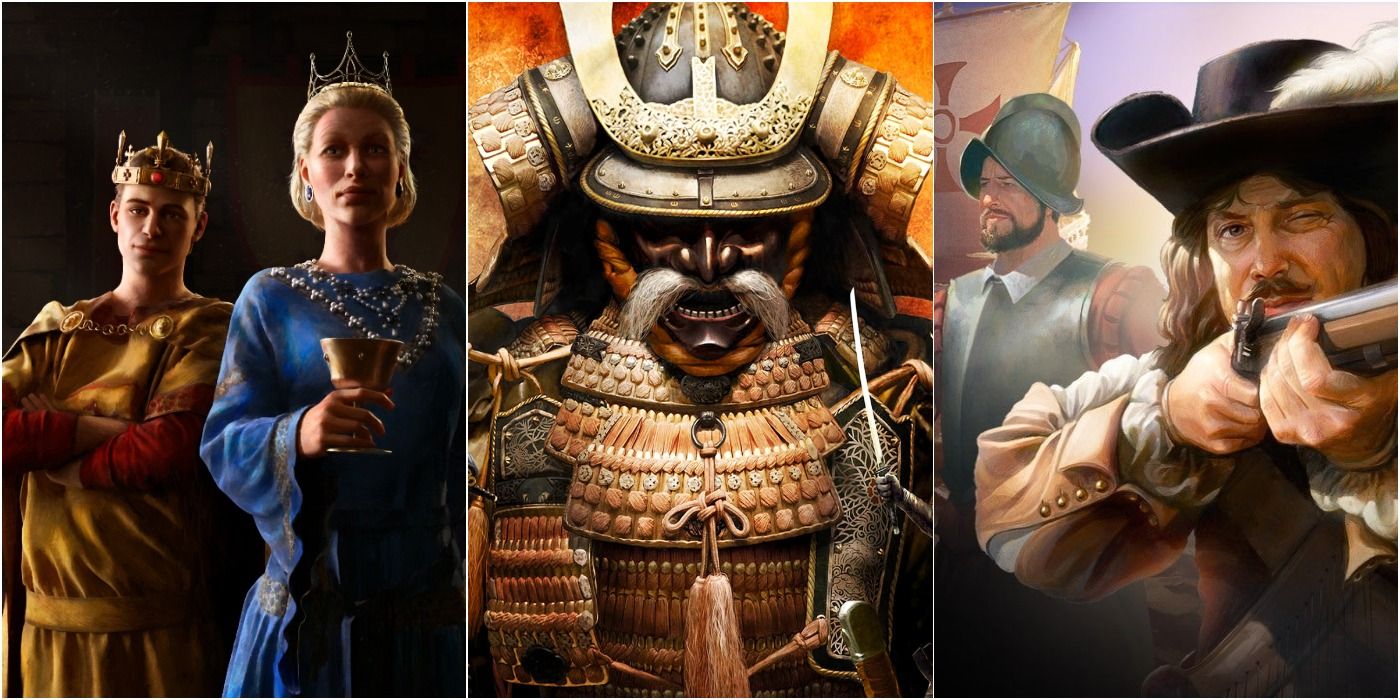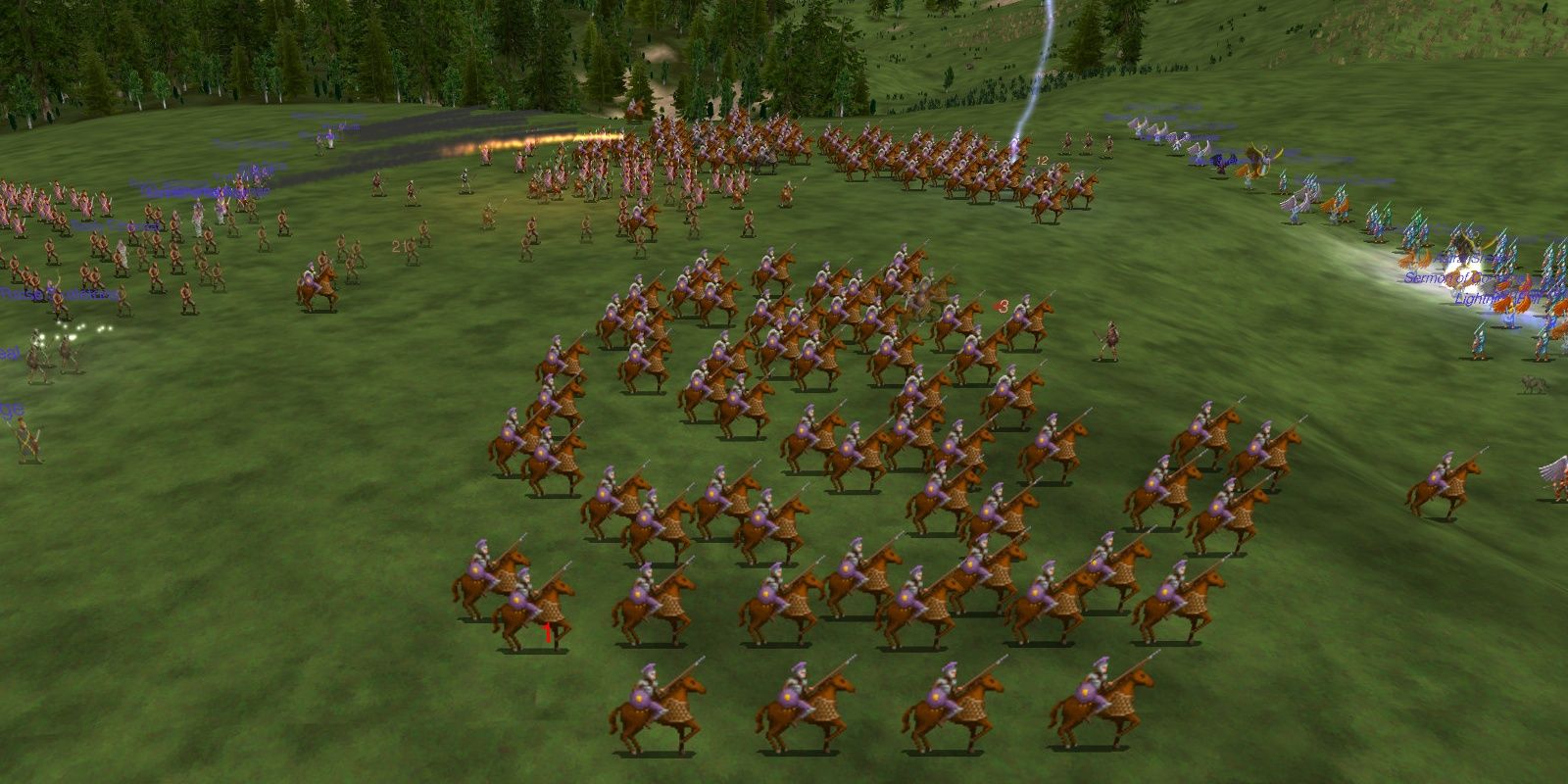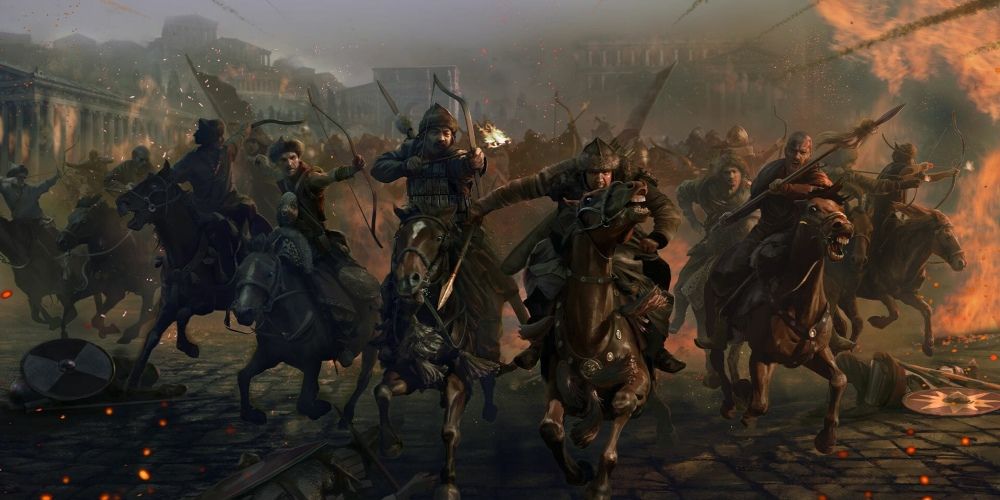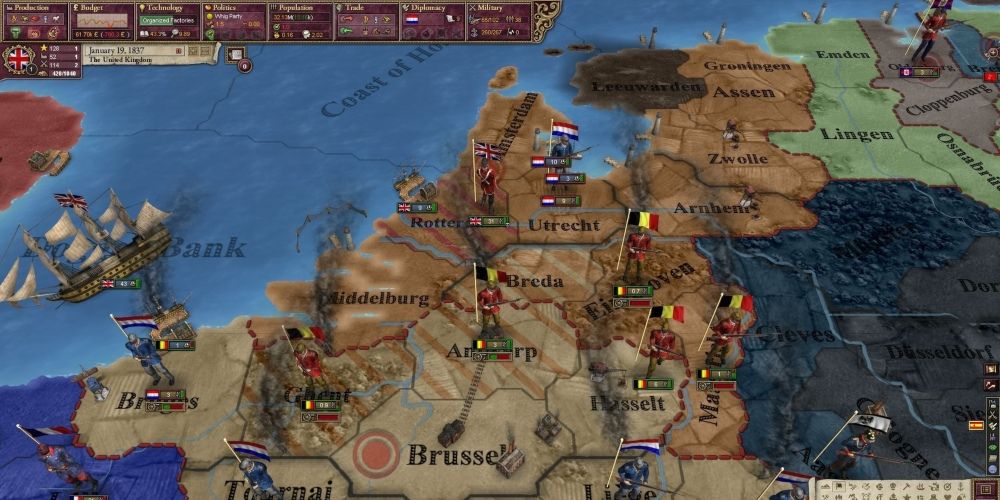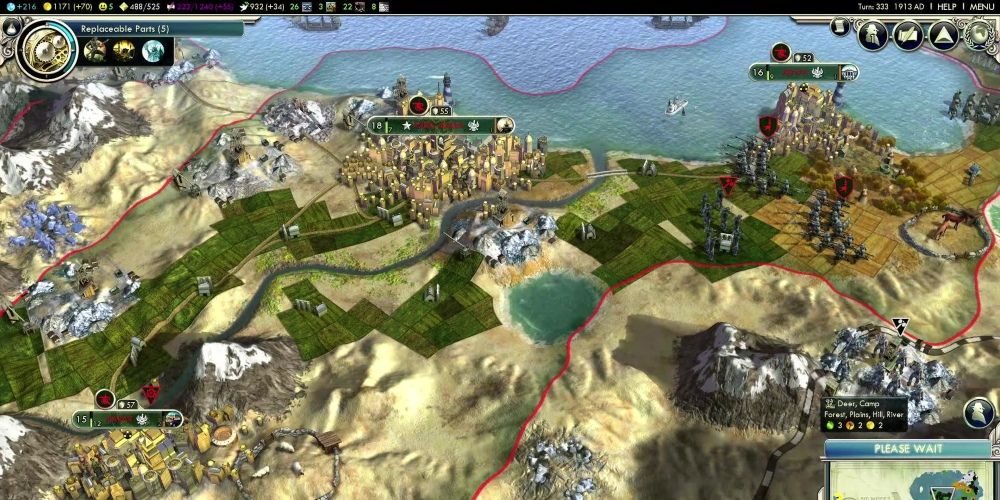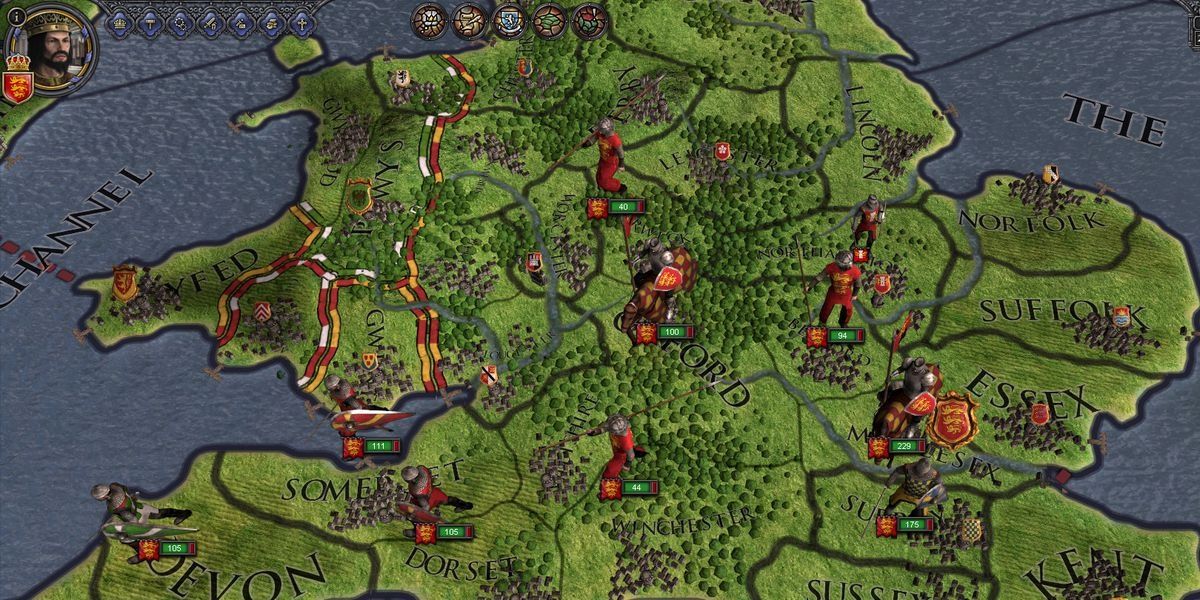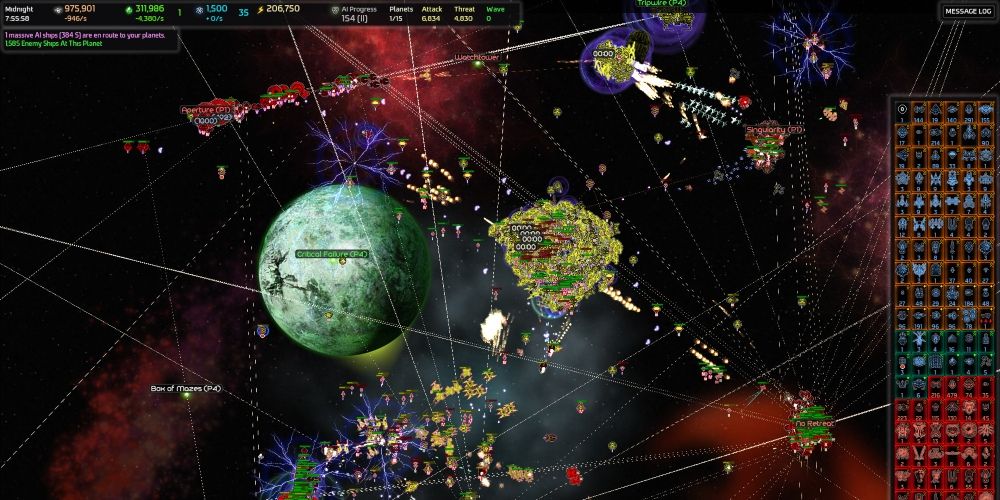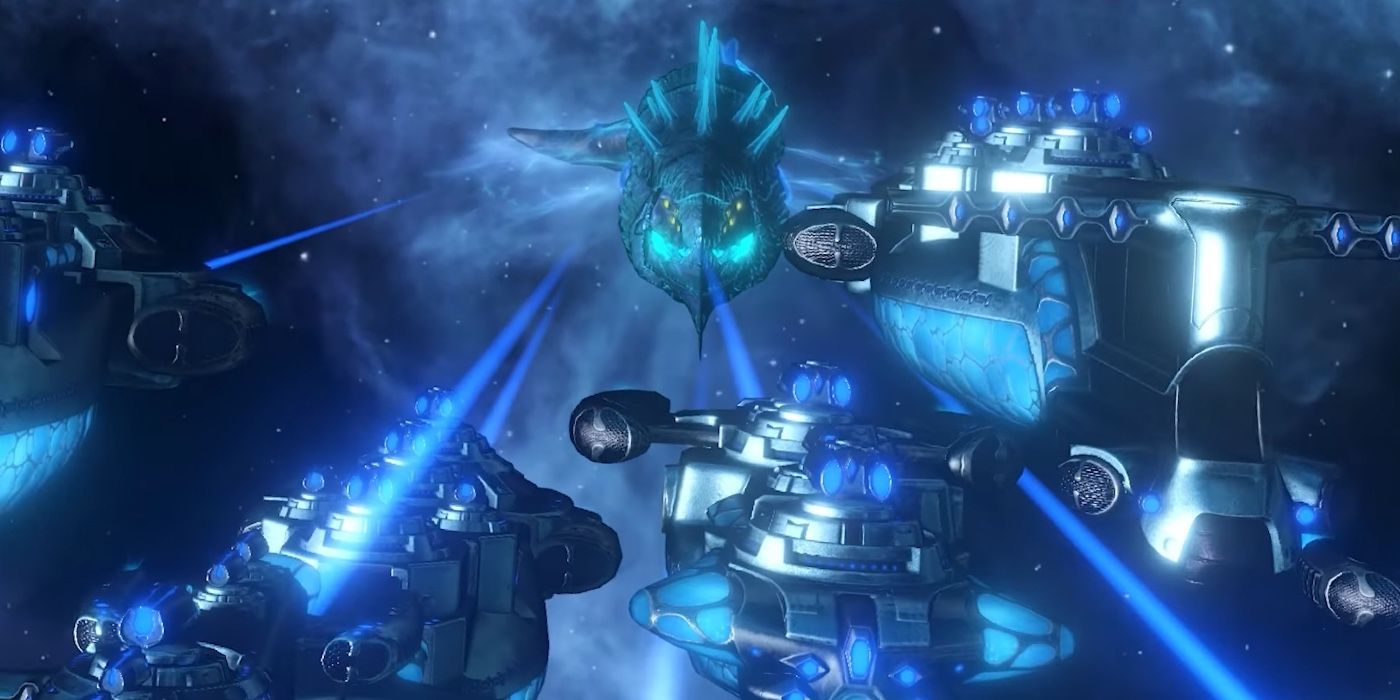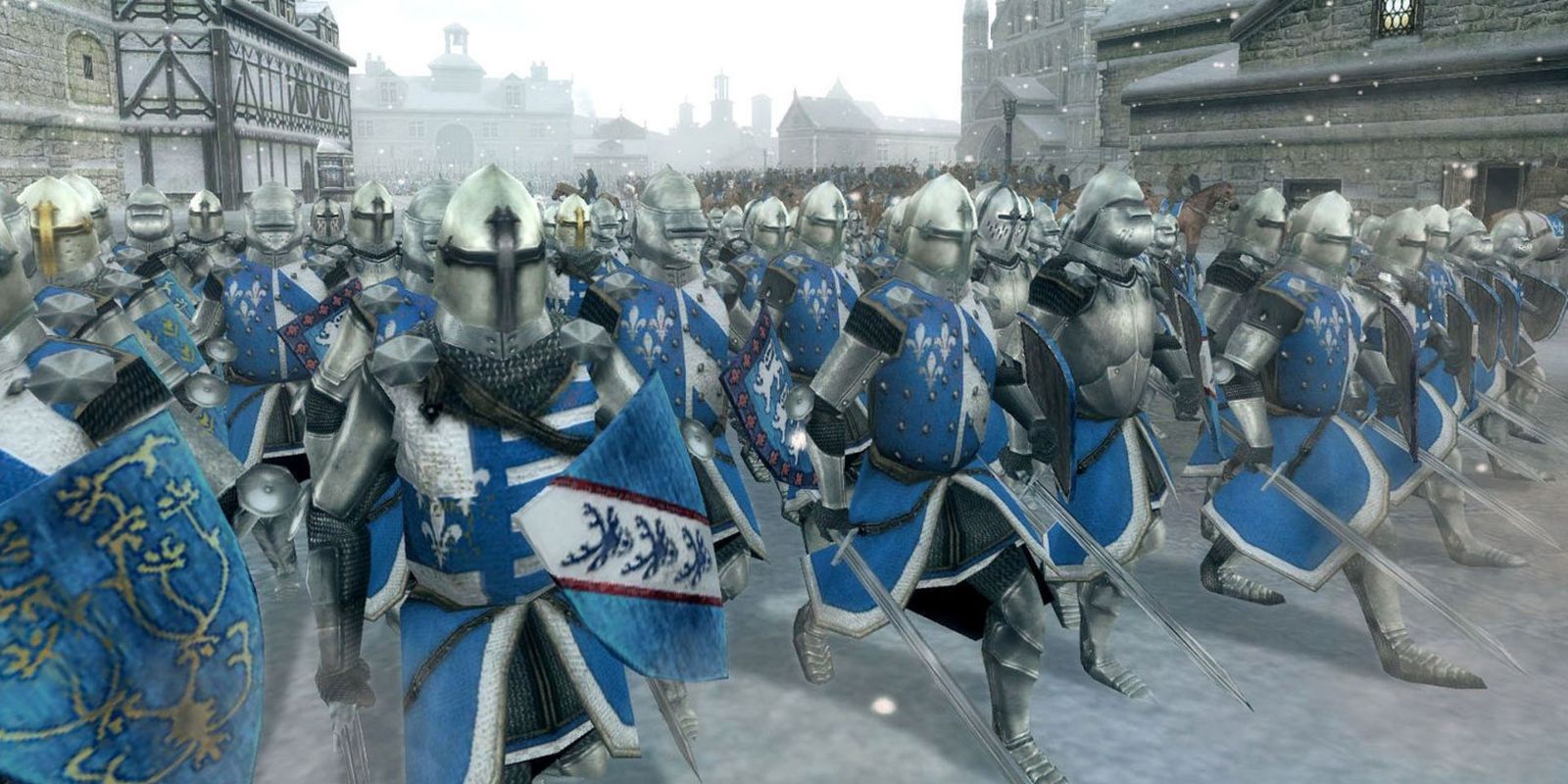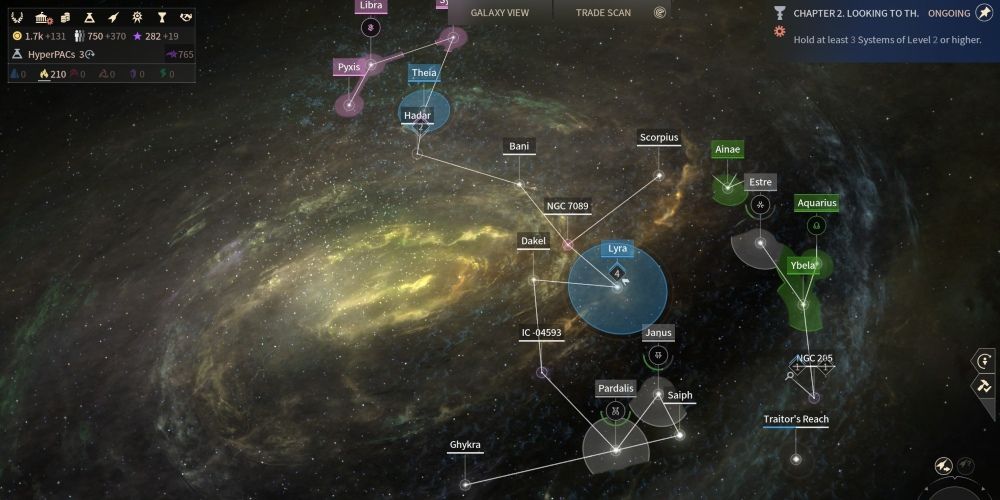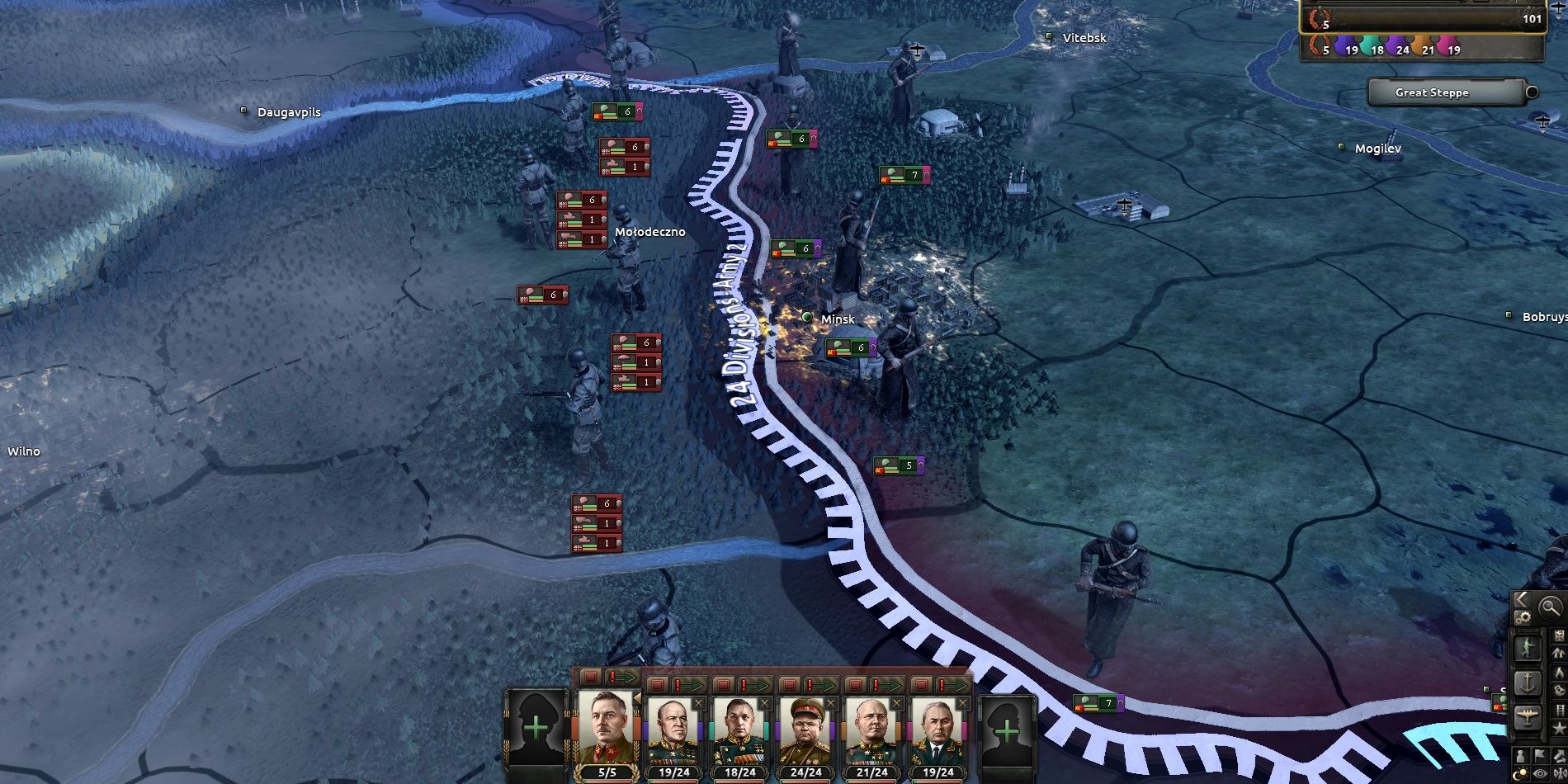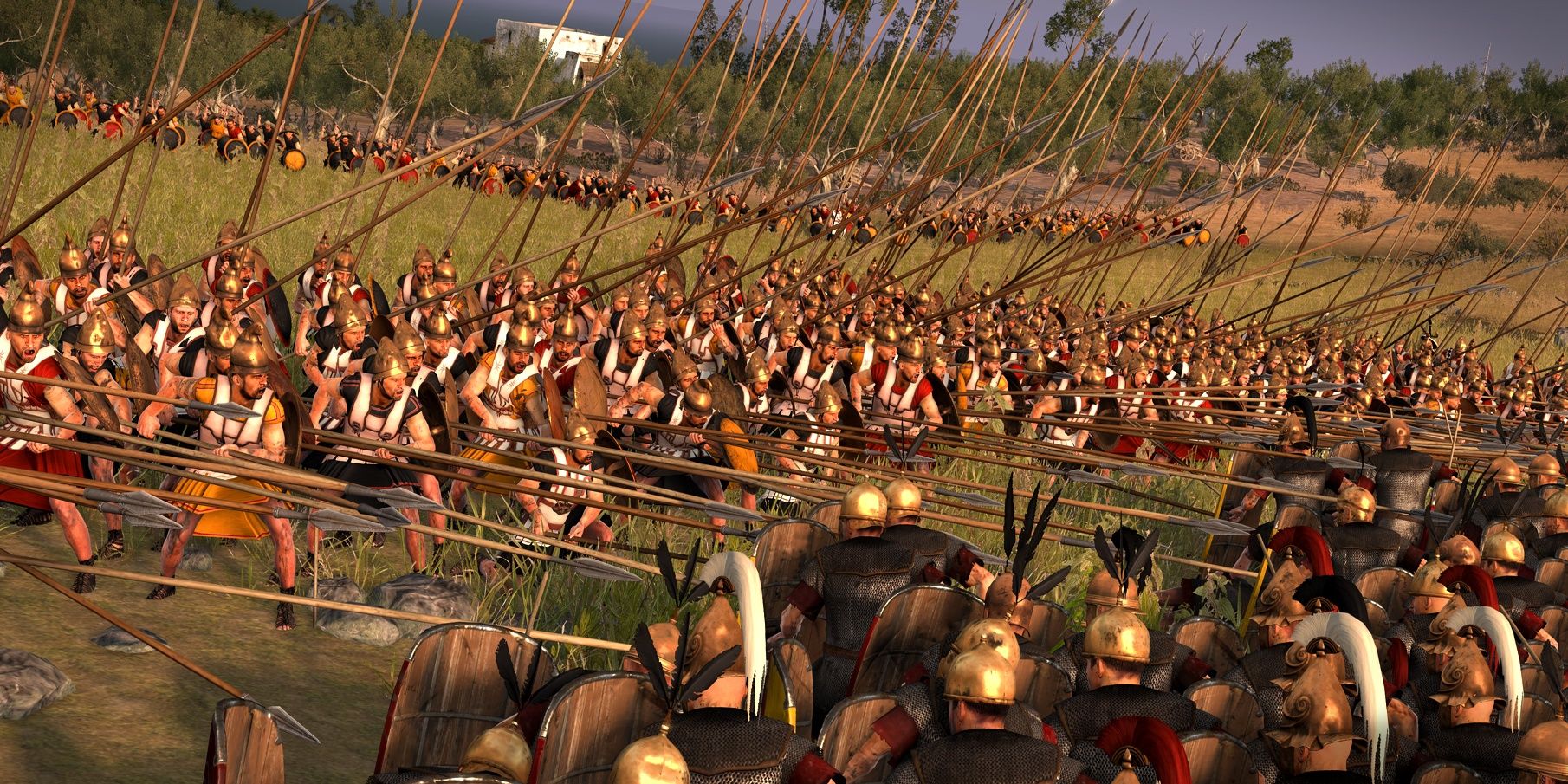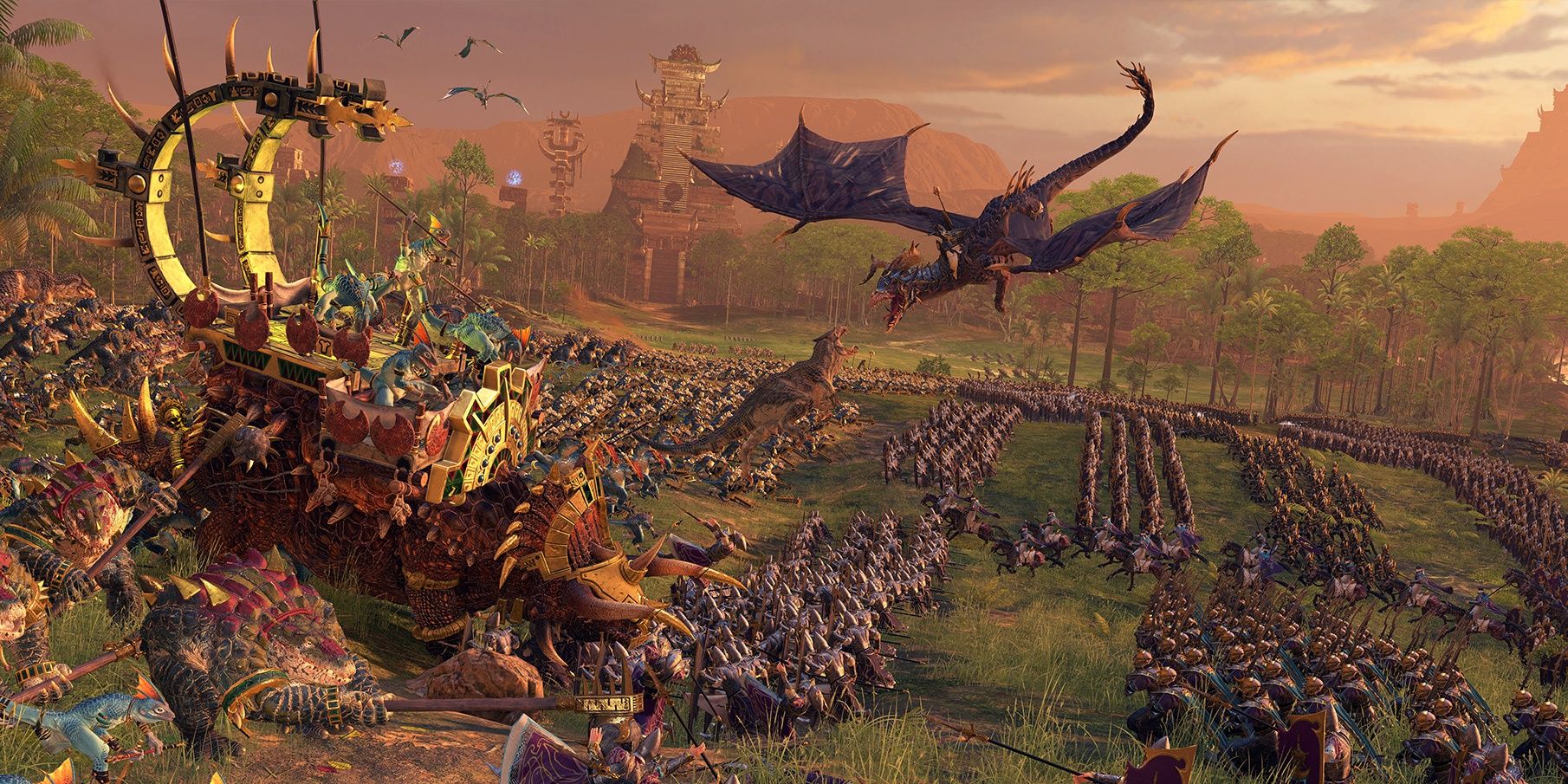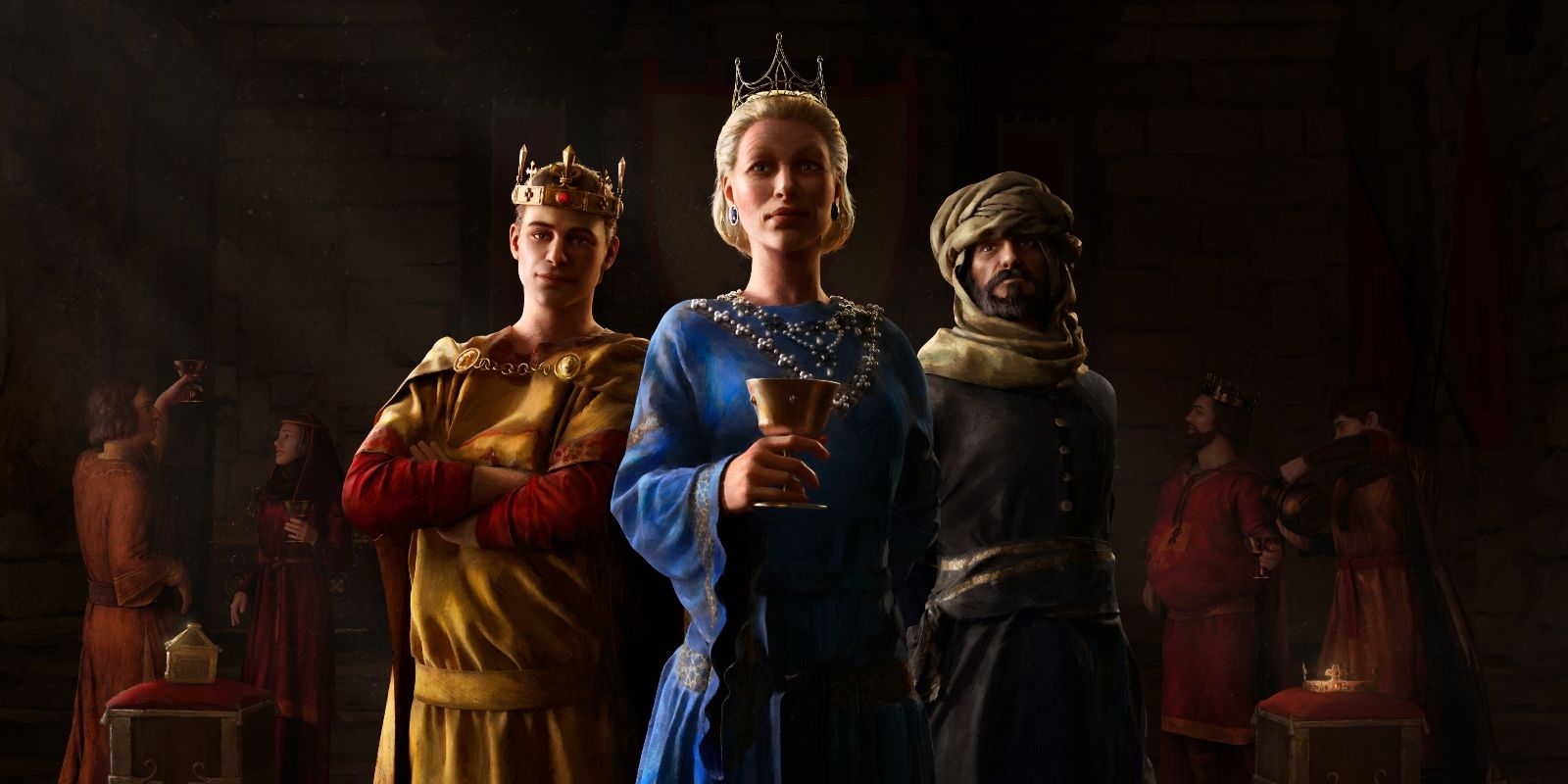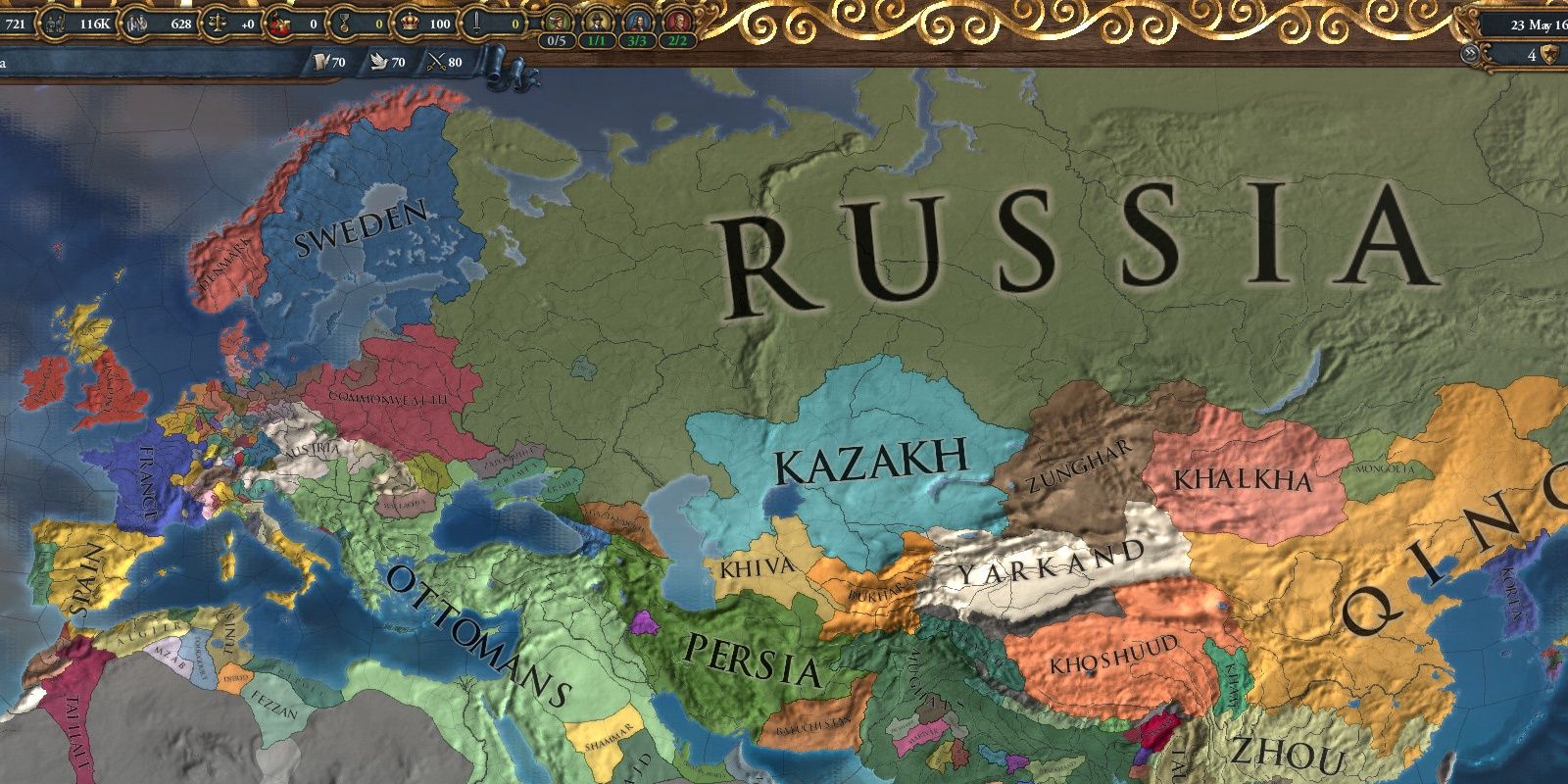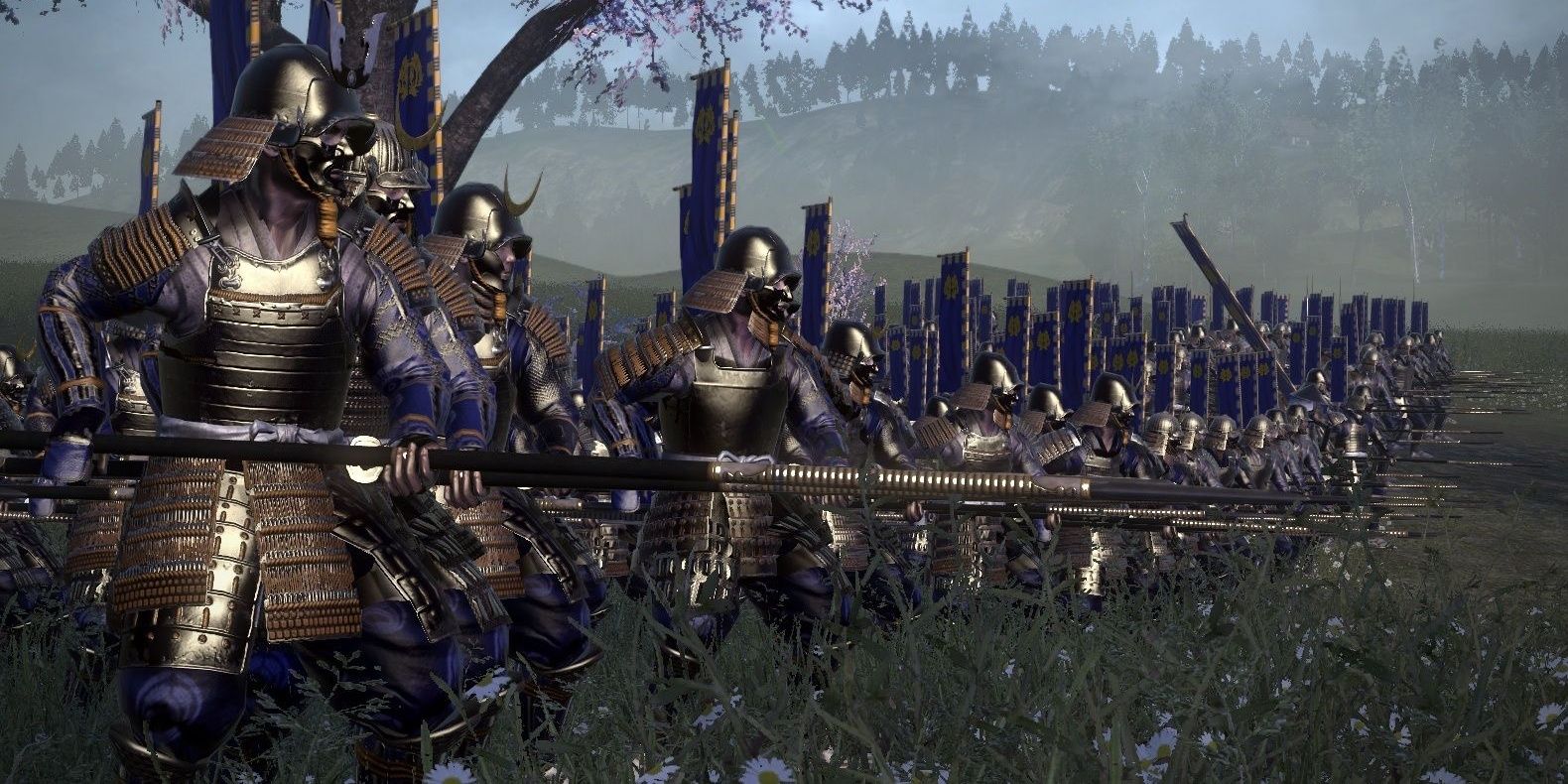Grand strategy games put the player in charge of not a single army, but an entire nation. They control its scientific development, industry, economy, and military to overwhelm the game's other factions. They take on a far greater scale than more traditional turn-based or real-time strategy games and focus on wars rather than individual battles.
The grand strategy genre as a whole is infamous for its complexity. Grand strategy games have a steep learning curve, bombarding the player with mechanics until they learn to keep up. Once a player grasps the fundamentals, however, they're likely to find one of the most satisfying experiences in all of gaming.
Updated 16th of September, by Isaac Williams: The grand strategy genre represents an enormous time sink for players. As such, they want to make sure they're getting into one of the best games possible, to reward them for their time and effort. This list has been updated to include even more of the grand strategy's finest entries and showcase the heights of the genre.
15 Dominions 5: Warriors Of The Faith Is the Rare Exception To The Rule Of Two
One of the best grand strategy games not made by Paradox or Creative Assembly is Dominions 5: Warriors of the Faith by Illwinter Game Design. It features some of the most complex gameplay in any strategy game and doesn't hold players' hands as they navigate through its dense amount of mechanics.
Those who manage to grasp Dominions 5 will find it one of the deepest grand strategy games available. The graphics may leave something to be desired, but players looking to dig into a truly meaty strategy game will not be disappointed in Dominions 5.
14 Total War: Attila Is About The Strategy Of Survival
Most grand strategy games are about conquest and expansion. The player builds up their army until they can crush their foe and take their territory. This extends to most of the Total War franchise, but not the unusual installment Total War: Attila. The game takes place during the Late Antiquity period, an era of great instability and political strife.
Whatever faction the player controls, they won't be planning epic conquests of the world. Instead, they'll spend their time managing corruption, trying to survive climate change, and watching their borders shrink. Total War: Attila is less about victory and more about mere survival, and it creates a unique tone for a Total War game that has yet to be replicated.
13 Victoria II Focuses On Politics And Diplomacy
Most grand strategy games focus on the military side of an empire to the exclusion of all else. Victoria II, however, takes place during a time when grand, sweeping wars didn't topple empires. Instead, the game focuses on the internal struggles of nations and the balance of power in its nineteenth-century setting.
Victoria II has military aspects, forcing players to maintain their armies and navies to survive. However, it also focuses on internal politics, expanded diplomacy with other nations, and the use of industry to become an economic power. It's one of the many games that cements Paradox Interactive as the leading company in the grand strategy genre.
12 Civilization V Blends 4X With Grand Strategy
A related genre to grand strategy is "4X," a type of strategy game where players grow an empire from the ground up. The two genres aren't completely separate, and one case of crossover is in the Civilization franchise. In the Civilization games, a player starts with a single city and sets about exploring their surroundings, expanding their forces, and then dominating their adversaries.
Many of the games in the franchise have their fanbases. Civilization V is one of the most consistently popular, hitting a good middle ground between realism and game simulation. The game lets a player control an iconic leader from history and pit their nation against others, dominating through military, technological, or other means.
11 Crusader Kings II Was The Original Game Of Thrones
Crusader Kings II puts players in the role of a dynasty during the medieval era and makes them manage not only their realm but their family as well. The player's characters will get married, have children, grow old, and die over the course of the game, assuming they don't meet some premature end.
After a character's death, the player takes on the role of their children, expanding their realm by force and diplomacy. However, Crusader Kings II also emphasizes the small, important parts of grand empires. A leader's personality traits and relationships with others can shape the future of the entire world. As such, Crusader Kings II is a uniquely personal grand strategy game despite its epic scale.
10 AI War: Fleet Command Forces The Player To Stay On The Back Foot
Most grand strategy games start the player at a disadvantage compared to other factions before setting the course for them to claw their way to power. However grimly things start, most strategy games end with the player dominating all opposition. This is entirely out of the question in AI War: Fleet Command, a game that takes place shortly after humanity's near-total extinction.
The AI antagonist of AI War has functionally limitless resources and soldiers to bring to bear. However powerful the player gets, they can't begin to match the AI in raw power. Instead, they have to complete strategic objectives without angering the AI too much, keeping up the fight against limited forces. It's a unique dynamic for a game, and a fulfilling experience to get right.
9 Stellaris Takes Grand Strategy Into Space
The realm of science fiction is well represented in strategy games, and Paradox's Stellaris is one of the best. Players take control of a spacefaring civilization as they expand into the galaxy, encountering alien species and facing down galaxy-wide threats.
Stellaris allows players to completely customize their civilizations by creating unique alien species with their own governments and ethos. The game never plays the same way twice, owing to the unlimited variety of player empires and the randomization of AI empires, in-game events, and endgame crises.
8 Medieval II: Total War Helped Build The Franchise
The fourth game in the Total War series, Medieval II: Total War followed the success of its predecessors by featuring similar core gameplay as previous entries. While some criticized its lack of innovation, many fans considered it a refinement of the previous games.
Medieval II puts players in control of a medieval European state and features two main gameplay modes; the campaign map and real-time battles. Both aspects are integral to the game and are a staple of all games in the main series.
7 Endless Space 2 Can Feel Like Several Different Games
Differences between factions are a key part of grand strategy. Each different nation or species gets different mechanics and advantages. This allows the player who best utilizes their faction's unique strengths to gain the upper hand. However, few games have as wide or varying factions as Endless Space 2 and its twelve empires.
Each faction in Endless Space 2 has a different focus and a different part of the game where they excel. From the spacebound Vodyani to the warlike Cravers to the extrauniversal Riftborn, the factions are incredibly diverse. In Endless Space 2, the player can feel like they're playing a different game depending on what faction they play. As such, it has a huge amount of content and replayability.
6 Hearts Of Iron IV Puts The World At War Once More
Set just before and during World War II, Hearts of Iron IV is one of the most complex historical war games. Players can manage the military economies, logistics, and politics of any of the nations involved in the massive conflict.
Like other games by Paradox, Hearts of Iron IV is fairly freeform, allowing the player to choose any one of the nations active during that period of history. Playing ahistorical narratives like a communist Canada or preventing the rise of Germany altogether gives each playthrough unique and interesting possibilities.
5 Total War: Rome II Allows Players To See And Conquer The Classical World
The initial release of Total War: Rome II is infamous for its poor quality. At the time, the game was replete with bugs, glitches, poorly-tested mechanics, and more. The backlash to the game was fierce. Creative Assembly refused to abandon the game, however, and have done huge amounts of work on it. The result is one of the best Total War games ever.
Total War: Rome II is both deep and approachable, easing players in and letting them get to grips with the mechanics a bit at a time. Its battles are varied, exciting, and deeply tactical. Its strategic layer blends realism and fun gameplay, pitting challenges in front of the player without recreating the grind and tedium of real-life empire management.
4 Total War: Warhammer II Is Fantasy War Gaming Done Right
The Total War series' second venture into the world of Warhammer was a huge success. It built on the first game by featuring a new map and new factions to play. The game also features an impressive amount of story woven in with its strategy gameplay.
While Total War: Warhammer II is functionally similar to other games in the franchise, the addition of fantasy elements like magic and monsters make for some innovative gameplay. Players who own both the first and second games also have access to the Mortal Empires campaign. This combines the maps and factions for both games, creating the ultimate fantasy warfare game.
3 Crusader King III Is The Ultimate Dynasty Simulator
Crusader Kings III is the latest release of its series and takes plenty of cues from its predecessors. It builds on everything in the first two Crusader Kings games that works, while discarding what doesn't. As such, it's the best version of the intimate grand strategy simulator ever created.
The third entry in the Crusader Kings franchise features greatly improved graphics, intuitive user interfaces, and improved mechanics. Planned DLC looks to further expand upon the gameplay and allow even more freedom for players to customize their realm and change medieval history for better or worse.
2 Europa Universalis IV Is Truly Grand In Scope And Gameplay
Europa Universalis IV is perhaps the purest example of the grand strategy genre. Set between the years 1444 and 1821 AD, players take control of one of hundreds of nations in a quest to change history and paint the map in their chosen color.
The mechanics are incredibly deep and may be daunting for new players, but Europa Universalis has an intuitive UI that helps players navigate the many aspects of their nation. Managing the military, economic, religious, and political aspects of the nation is a complex but satisfying experience. The sheer amount of content in Europa Universalis IV means players can easily sink hundreds or even thousands of hours into this game.
1 Total War: Shogun 2 Slices Through The Competition
Set in 16th century Japan, Total War: Shogun 2 follows in its predecessor's footsteps by departing from a medieval European setting to put players in control of feuding Samurai warlords. A later expansion, Fall of the Samurai, takes the game to the 19th century as the government attempts to abolish the shogunate.
Shogun 2 received overwhelming praise upon release for both the refinement of its mechanics and the overall graphics and gameplay. Often considered one of the best strategy games of all time, it is a staple of the genre and a must-play for fans of Total War and grand strategy games in general.

